Space Worker Hall of Fame Award
About the Award
The NSCFL Space Worker Hall of Fame honors those who made significant contributions to our space program in all areas of launch and mission operations including Space Launch Technology, Space Flight Support, Human Spaceflight Advancement, and Space Flight Advocacy and Education.
No more than a total of 12 honorees in any combination of categories will be selected per year.
Space Worker Hall of Fame Categories
(Please note that a person may be nominated for only one category.)
Space Launch Technology
For exceptional contributions to the Space Vehicle, Ground Launch or Range Systems, involving hardware, procedures, software and/or technical support that directly contributes to the launching of manned and unmanned payloads in support of United States Space interests.
Space Flight Support
For exceptional contributions to Space Port secondary support necessary to maintain and preserve the capability to launch manned and unmanned payloads into space. This may include facilities, operational support services and employee / environmental programs.
Human Spaceflight Advancement
For exceptional contributions to the direct advancement of human suborbital, orbital or beyond orbital spaceflight technology.
Space Flight Advocacy and Education
For exceptional promotion and advocacy of spaceflight education to the general public.
Nomination and Selection Guidelines
Nominees should have demonstrated sustained performance in, or currently be in the process of, making significant contributions to enhancing U.S. National Space access technology or capability in one of the four categories detailed below.
Nominees may be currently employed or retired; alive or deceased.
A nominee cannot have been recognized by any other NSCFL award.
Any individual or organization may make a nomination. You do not have to be a member of the National Space Club Florida Committee to make a nomination or to be a nominee.
Florida residency is not required to receive the award, but the achievements being recognized must have been made while employed in Florida.
Previously receiving an NSCFL Award does not automatically disqualify a candidate. The Award Selection Committee will consider the matter on a case by case basis.
Current Hall of Fame Recipients (2022)
Human Spaceflight Advancement
Roy Freeman
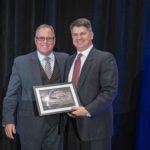
Roy began his career in 1984 for the Boeing Company (heritage Rockwell Aerospace) working the Global Positioning System (GPS) satellite program. He transferred to Cape Canaveral AFS (CCSFS) in 1987 to support the launches for 28 GPS Block II &IIA satellites on the Delta II launch vehicle. He worked at Schriever AFB, CO from 1994 to 2006 performing GPS BII/IIA On-orbit Operations. In 2006, he returned to CCSFS, FL to support 12 GPS Block IIF satellite launches from 2006 to 2016. As of 2016, he currently works for the Boeing Commercial Crew Transportation System Program Communication & Tracking System Test Engineering. Roy and his wife Fran reside in Rockledge.
Ruth Gardner

Ruth moved to Cocoa Beach in 1989 and began her career with NASA at KSC. For the next 26 years she spent her days dedicated to advancing the U.S. Space Program. Her highly successful project management accomplishments led her into progressively responsible positions in the ISS and Payload Processing communities. In her first major role as the Airlock Element Manager for the ISS, she designed an organizational structure that bridged the gaps between the flight element design center and KSC’s test and checkout requirements. By valuing the different perspectives of others, she was able to facilitate communication and successfully bring out the best in everyone around her. Ruth received numerous awards throughout her career, including the Presidential Rank Meritorious Executive Award, NASA Exceptional Service Medal, NASA Exceptional Achievement Medal, and Outstanding Woman Engineer by the Society of Women Engineers. In December 2006, Ruth’s leadership was recognized by KSC and Agency leadership when she was appointed to the Senior Executive Service. As the Agency embarks on its newest adventure with Artemis, Ruth’s contributions endure as she was instrumental in selecting the Mobil Launcher design concept that will launch the first three missions. Last October we lost Ruth to metastatic breast cancer. Her family, friends, and colleagues are honored that her hard work and life’s dedication has been recognized with acceptance into the Space Worker Hall of Fame.
Space Flight Advocacy and Education
Luis Berrios

Working as a Design/Public Affairs Specialist for the Communication and Public Engagement Directorate for the past 18 years, has allowed Luis to help inspire the next generation of explorers through experiential outreach at NASA’s Kennedy Space Center. He is part of a passionate, creative outreach team that designs, plans, and produces, powerful story-driven guest experiences, that emotionally connect the excitement of humankind’s greatest adventure, the daring exploration of space. Luis enjoys seeing ideas come to life from conceptual sketches to exciting finished immersive productions for exhibits, experiences, and content development. His work helps make NASA cool, relevant, and accessible to everyone by humanizing technology and evoking emotional connections about technical information. The NASA story is a “people” story. Examples of KSC projects include Shuttle Launch Experience, Space Shuttle Atlantis, Forever Remembered, Ad Astra Per Aspera, A Rough Road Leads to the Stars, Journey to Mars: Explorers Wanted, Touring Shuttle Columbia Safety Exhibit, Beans and Cornbread Tribute Exhibit, and the Rocco A. Petrone Launch Control Center. “Don’t just communicate, fascinate.
Eddie Ellegood

Edward began his career as a space industry economist in the Florida Department of Commerce, while there he served as staff to a Governor’s Commission on Space, which recommended that the state take a larger role in developing the space industry. He moved from Tallahassee to the Space Coast in 1990 to start-up the Spaceport Florida Authority (now Space Florida) as the nation’s first space transportation authority. In 2001 he transitioned to start-up the Florida Space Research Institute as a spinoff of the Spaceport Authority. After FSRI and the Spaceport Authority were dissolved to make way for Space Florida in 2006, he joined Embry-Riddle Aeronautical University as a Space Policy Analyst and Director of Aerospace Development. He has since worked with Starfighters Aerospace, Saalex Corp., SimIS Corp., and currently ICF Corp. He serves on the board of the National Space Club, Florida Committee, and publishes the weekly FLORIDA SPACErePORT newsletter
Space Flight Support
Al Studt

Al Studt began his career at Kennedy Space Center in 1990 by transferring from EG&G Rotron to EG&G Florida. Starting off in fire alarms, he quickly moved into fire suppression and was responsible for 70+ specialized Halon 1301 fire systems in support of the Shuttle Program for more than 86 missions. Starting with BOC, Al also supported JBOSC, ISC and BOSS contracts and is presently the Lead Engineer in Fire & Protective Systems as well as the Teammate Principle for Aerodyne Industries. In parallel, Al has also been in the volunteer fire service for 39 years, serving locally with Canaveral Fire Rescue as a Lieutenant and Marine Fire Instructor at Port Canaveral. After 9/11, Florida formed urban search & rescue teams and Al was a founding member of Task Force 4 as a Communications Specialist and later cross-trained into Structures Specialist. He deployed to Hurricane Katrina in Mississippi, the Berkman Garage collapse in Jacksonville, and the recent Champlain Towers collapse in Surfside. He was voted Task Force 4 Member of the Year in 2015. Al became a national advocate, author, and instructor for the U.S. National Grid coordinate system and after many years brought it to KSC where he won an Innovation award and funding to place Emergency Location Markers on KSC in 2018. Al and his wife Lori live in Port St. John and enjoy time away in Tennessee and North Carolina with family
Brenda Wall

Brenda Wall has over 30 years of experience in range safety and system safety, beginning her career in Houston working Shuttle range safety analysis and operations. She has supported NASA, DoD, and FAA with reliability and safety analysis on a wide variety of vehicles spanning manned space flight and reusable launch vehicles to Unmanned Aircraft Systems. Brenda has conducted risk and hazard analyses to ensure mission success and to protect both people and high-value assets during flight operations. She is currently supporting the NASA Agency Range Flight Safety Manager in policy and requirements development while accomplishing unique or challenging range safety hazard and risk analyses across the Agency. She is also an active participant in the Range Commanders Council’s Unmanned Aerial Vehicle Committee. Brenda generates range flight safety training material and is a NASA-approved course instructor. NASA awarded Brenda a Silver Achievement Medal for outstanding leadership, dedication, and significant contributions to NASA’s Range Flight Safety Program. Brenda enjoys living on Merritt Island with its abundant wildlife and recreational areas.
Lynda Thompson

Lynda M. Thompson has been an integral member of KSC’s Human Spaceflight Program since she began her aerospace career in 1979. For the next 43 years, Lynda supported 135 Space Shuttle missions (1981-2011), was honored for ensuring retention of critical support equipment and documentation for NASA (2011-2013) and supports NASA’s Artemis Program (2013 – present). Lynda’s illustrious career began with Rockwell International, and later transitioned to Lockheed Space Ops and United Space Alliance, where she was honored with her first Space Flight Awareness Award, Quest Quarterly Award, a Quest Performance Award, and a Quest Peer Recognition Award. During Transition and Retirement, she was honored with a NASA Group Achievement Award. Since 2013 she has provided key leadership as a Lead Associate Engineer for Ground Systems Support for Aerodyne Industries on the Test and Operations Support Contract, where she was honored with a second Space Flight Awareness Award, two TOSC Director’s Awards, and a Volunteer Award. She provides leadership for the Maximo Administrative Team, initiates and updates Operating Procedures, analyzes data and publishes Key Process Indicator Metrics, analyzes and integrates customer requirements to generate technical products, and translates technical requirements to aid in the design of new applications. A highly experienced and multi-talented teammate supporting NASA’s most prominent programs, Lynda is a leader who has made a substantial impact at KSC. Lynda and husband Dennis have 10 children and live in Cocoa with daughter Ryleigh and currently provide foster care for two young children
Melquiades (Mike) Lopez

Mike Lopez graduated from Merritt Island High, earned a degree in Aerospace Engineering Technology from Miami-Dade Community College, and received a bachelor’s degree in Information Technology from Barry University. He started his KSC career in 1979 as an Electrical Technician with Bendix fabricating/installing wiring harnesses for the Shuttle Boosters. Mike has over 40 years of experience in the operations and maintenance of GSE and facilities, including 25 years in the operations management capacity. He became Section Supervisor of the Power Generator Shop where he coordinated the maintenance and operations of Xenon searchlights at KSC and remote Trans-Atlantic Landing Sites. During this period, he won the KSC Center Director Gold Dollar for process improvements for saving significant money replacing the aging fleet of Xenon lights used to support Shuttle, Titan, Atlas, and Delta launches. He was then promoted to the position of Facilities/Equipment Maintenance Manager where he led 100+ various craft employees to include supervisors, electricians, generator mechanics, HVAC mechanics, protective system technicians, crane operators, and System Maintenance Engineers. Today, as the O&M Technical Operations Manager on the BOSS contract, Mike is responsible for all KSC O&M of the high voltage power grid, low voltage systems, HVAC systems, Fire Alarms/Security systems, and the 10-megawatt emergency power plant which is an instrumental part in providing backup power for the Artemis program
Paul Espy
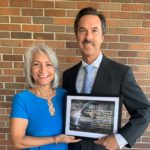
For more than 35 years, Paul Espy has been one of the most decorated KSC employees, earning NASA’s and his organization’s highest commendations while leading the most visible ground support equipment projects. Since 2013, he has served as a Project Manager for Aerodyne Industries supporting the Test and Operations Support Contract. Paul managed the development and completion of the Mobile Launcher, Vehicle Assembly Building Platforms, and Pad B mods. He also led 20-Year Life Extension Upgrades for the Crawler Transporters to mitigate obsolescence and support heavy-lift requirements for the Artemis Program. Paul’s KSC career began in 1987 supporting the Shuttle Program as an Engineer with United Space Alliance (USA). He was responsible for management of construction contracts for the modification and upgrades of major facilities. While with USA, Paul received NASA’s Space Flight Awareness Award and a Silver Snoopy Award, the astronauts’ recognition of excellence. In 2016, Paul received Aerodyne’s highest honor – the President’s Award – for the successful completion of crawler upgrades in excess of $17M. He also earned a KSC Group Achievement Award for implementing a design solution for the Ignition Overpressure Protection and Sound Suppression Prototype Testing for Artemis II. In 2018, Paul was also honored with the Space Coast Public Service Award for administering CPR to save the life of a co-worker. Paul has two children, Addison and Marrin, and resides in Titusville with his wife Teresa
Tom Hendricksen

Tom Hendricksen was born and raised in New Jersey and moved to Florida in 1987 to attend the Florida Institute of Technology where he received his Bachelor of Science degree in Biology. Throughout his career at KSC, his focus has been to help KSC operational activities perform in the most environmentally responsible manner in support of the main mission of providing access to space. He began his professional career in 1993 working as an environmental consultant supporting the KSC Remediation Office. In 2001, he was hired as an environmental scientist on the Joint Base Operations and Support Contract which began his career 20+ year career supporting KSC environmental programs in a full-time capacity. Since then, he has worked on several successor medical and environmental contracts serving in different capacities starting as project manager, then as a manger overseeing regulatory compliance and sampling activities, and finally to his current position as Director of Environmental Services under the NASA Environmental and Medical Contract. Tom is married to his wife Cheryl of 27 years, and they reside in the Suntree area of Melbourne. Together they have two adult sons, Aaron and Tyler, who reside outside the Space Coast area
Space Launch Technology
Howard Schindzielorz
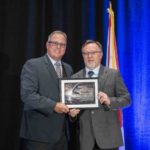
After graduating from WVU, Howard started his space career with Lockheed Space Operations Company (LSOC) in 1988 as a hypergolic systems engineer on the Shuttle program. In 1991 he transitioned from LSOC to NASA/KSC. In 1996 he accepted a system safety engineer position with the USAF, 45 SW/Range Safety office on Titan IV, Shuttle, and Atlas II/III/V programs. In 2000, he returned to NASA/KSC and the shuttle program as a liquid oxygen system engineer, before returning to the 45 SW/Range Safety office for good in 2002. Hhe worked as a systems safety and Flight Termination Systems (FTS) engineer until 2004, when he became Chief of the 45 SW/Range Safety FTS office. From 2008-2021, Howard was the Chief Engineer of the 45 SW/Range Safety office. During his space career Howard worked on 351 space missions from CCAFS/KSC plus additional suborbital and SLBM test launches including Ares 1X, Orion capsule Ascent Abort-2 test and Dragon capsule in-flight abort test. He led the 45SW/Range Safety office through development and inaugural flights of 3 major programs (Atlas V, Falcon 9 and X37-B/OTV) as well as two manned spaceflight programs (Dragon and CST-100 capsules). He also worked on 5 major space launch mishap accident investigations/return-to-flight activities including Titan IV/A-20, Falcon 9/CRS-7, Falcon 9/Amos-6 and Dragon static fire anomalies. Most significantly, Howard led the development and implementation of Autonomous Flight Safety Systems at the Eastern Range
John McClelland

He grew up watching Apollo launches as a child, and in 1987, John McClelland began his KSC career as an Instrumentation Engineer. For 35 years, he has gone above and beyond helping co-workers achieve perfection in a field that demands nothing less. John devoted 24 years supporting the Space Shuttle Program with Lockheed Space Operations Co. and United Space Alliance as a Space Shuttle Main Engine Avionics Engineer and Test Project Engineer. He joined Aerodyne Industries on the Test and Operations Support Contract supporting NASA with the Space Launch System in March 2013. John’s technical leadership and contributions have been recognized with some of NASA’s most prestigious awards. He earned NASA’s Space Flight Awareness Award for both Individual and Team, NASA’s Silver Snoopy, and in May 2022 was recognized with NASA’s Silver Group Achievement Award for the successful development of launch console displays, software, procedures, and training in support of Artemis I. NASA’s Exploration Ground Systems honored him with a Go the Extra Mile Award for his support training SLS Core Stage Engine concepts to Marshall Space Flight Center personnel. Such support is nothing new for John – he has done it for more than three decades. A highly respected leader at KSC; John is willing to impart his wisdom and experience to ensure success for all. John lives in Viera with wife, Bonnie, and son, Ryan. Son Kyle attends the University of Florida in Gainesville
Lawrence (Larry) Maggie
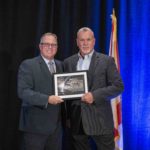
Prior to Lawrence Maggie’s career as a NASA Quality Assurance Specialist at Kennedy Space Center, he served four years in the United States Air Force and three years in the United States Army Reserves as an aircraft technician, lead, and flying crew chief. Larry’s first civilian civil service position was with the Department of Defense working at New Cumberland Army Depot in Pennsylvania. There, he served as an aircraft technician for seven years, working on fixed wing aircraft and helicopters. The depot was tasked with rebuilding and major overhauls of all series and types of Army aircraft. Larry started his aerospace career at NASA in 1987 as a NASA Quality Assurance Specialist in the manned space flight program working on the Shuttle Transportation System from STS 27 to STS 135 There, he was required to interface on many aspects of the STS system: shuttle, boosters, tanks, engines, and ground support systems as a Quality Assurance Specialist. Larry retired from government service with NASA in 2008 and has worked for two NASA contractors since, Millennium Engineering and Integration and APT Research Inc. Maggie currently supports APT Research with the NASA Orion Artemis Program for manned flight as a Quality Assurance Specialist
Robert Myers
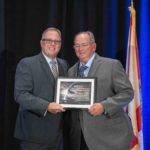
Robert Myers was born in Baxley, Georgia and grew up in Jacksonville Florida. He graduated from Florida Junior College in Jacksonville and attended University of Florida in the mid 70’s. Robert began his career at Westinghouse in Jacksonville building Floating Nuclear Power Plants. Unfortunately, the concept lost its investors, and he was laid off in late 1977. The Space shuttle program was ramping up in 1977-78 and he was hired by Boeing Services International. Robert worked in the Cranes, Doors, and Platforms section. In 1982 an opening in the Crawler Transporter section became available and he was able to transfer to that section. Robert trained for about a year as a cab operator, along with system responsibilities for Crawler mechanical systems. Once he gained the cert for driver, he moved onto JEL Operator and finally Control Room Engineer. Robert has operated and maintained the Crawler Transporter through 133 Space Shuttle rollouts, the Constellation program, and now Artemis with the Space Launch System. The Crawler Transporter and Kennedy Space Center has made for a wonderful and interesting career and he is proud to be a part of it
Waymon (Chuck) Rake
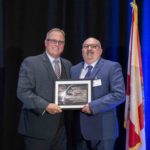
As Manager of the Flight Electrical & Pyro Engineering Team for Aerodyne on the Test and Operations Support Contract at KSC, Chuck Rake’s team is responsible for some of the most critical aspects of the Space Launch System rocket and Orion spacecraft. Chuck leads engineers in several technical disciplines, including pathfinders for Level 1 Firing Room certifications, field-testing technical processing procedures, and spaceflight application software development, verification, and validation to support the Multi-Payload Processing Facility, Mobile Launcher, and vehicle test, checkout and launch of the Artemis Program. Chuck’s team success is due to his keen ability to utilize the strengths of each teammate, develop skills where necessary, and create a culture of trust and fairness, essential components for a group supporting critical tasks. He has 32 years’ experience leading teams on highly visible technical projects. Chuck joined United Space Alliance in 1990 as an Engineer supporting the Shuttle Program. He eventually became Systems Specialist of the Flight Electrical team that supported the Electrical Power Distribution and Control systems for the entire Space Shuttle fleet. Chuck was honored with NASA’s Space Flight Awareness Award in 2018 for outstanding leadership and dedication to Artemis I engineering planning and execution activities. Chuck and his wife Candy live in Titusville
Past Hall of Fame Recipients (2021)
Human Spaceflight Advancement
- Jennifer Hall
Space Flight Advocacy and Education
- Donald Frost
- Barry Bohnsack
Space Flight Support
- Vijai Prabhudial
- Thomas P LaForge
- Carrie Seringer
Space Launch Technology
- Timothy Harmon
- Randle Clay
- Joseph A Lebalanc
- John Blankenship
- Jeff McAlear
- Elhanon (E.W.) Hall
- Daniel Ciccateri
Past Hall of Fame Recipients (2020)
- Harvey “Neil” Mizell
- Michael L. Young
- Donald Fields
- Sherri Johnson
- David Russell
- Burton R. Summerfield
- Ellen P. Brown
- J.B. Kump
- Carl C. McManus
- Kevin L. Simmons
Past Hall of Fame Award Recipients (2019)
- Ralph Rohloff
- Mike Chappell
- Randy Stalnaker
- Leslie Lake
- Matthew “Matt” Woodings
- Elizabeth Allen
- Stuart Warren
- William “Bill” Dowdell
- Joe Mayer
- LaDonna Neterer
- Jerry Moyer
- Diane Matthews
Space Flight Support
James Baker
James has held positions including Space Utilization Specialist and Planner/Estimator and assumed responsibilities as Event Logistics Support Planner in Work Control and Mission Support offices providing coordination to NASA, commercial partners, contractors, and other Federal Agencies, supporting Special Events and manned, commercial and DOD launches at KSC. James was awarded the Silver Snoopy in 2012 and resides in Merritt Island with his wife Yvonne.
George Broyles
George started at KSC after the Air Force, working BOC and JBOSC, while also serving the National Guard. Promoted to Branch Manager, Facilities Maintenance, he was also assigned as FSEU Hurricane Coordinator, supporting KSC response and recovery efforts. George continues in that role with ISC/AECOM, receiving an MS from UCF and a PMP from PMI. Originally from FL, George lives in Titusville with his wife Jessica.
Steven Dean
Steven was born and raised in Brevard County, holds a Bachelor Degree from Embry Riddle, and works as a Senior Manager with ERC on TOSC. Steve’s 35-year career at KSC has extended through the Shuttle, Ares and now the Space Launch System programs where he was leads, motivates and inspires team members. He lives in Cocoa with his wife Cheryl; they have two children and three granddaughters.
Frank “Clay” Flinn
Clay Flinn is the Atlas Program Launch Weather Officer for the 45thWeather Squadron at CCAFS. He served as Meteorologist, Senior Instructor Missile Combat Crew Commander, and Acquisition Corp Program Manager, taught high school physics, and was the Weather Squadron’s instrumentation integrator. Clay, born in LA, resides in Merritt Island with his wife Barbara. He earned a BS from The Citadel, completed the Meteorology Program from St. Louis University, and earned an MS from USC.
Pam Krueger
Pam, born and raised in IL, started her career as a structural engineer supporting nuclear power plants. She moved to the Space Coast in 1988, providing engineering services on the Launch Base Support contract at CCAFS then with JBOSC at CCAFS/KSC. She is a Registered PE and is the ISC Division Manager for Engineering/Project Integration at AECOM. Pam and her husband Gary reside in Merritt Island and have two grown children, Alison and Ken.
Elizabeth “Betty” Muldowney
Betty, a Florida native, has 39 years at KSC. As a member of the Standing Accident Investigation Board, she was a first responder for the Columbia accident. During the end of the Shuttle program, she assisted in employee transition. Betty has held positions with Vencore and Abacus and is currently the Director of Safety, Health and Mission Assurance for ASRC on KIAC. She holds a BS and multiple certs. Betty resides in Orlando with wife Julie and their doodles, Marshall & Mattie.
Rikki Ojeda
Rikki began his Shuttle career in Palmdale working Build and Modifications, worked Launch Site Activation of Vandenberg SLC 6, then returned to Florida serving as Vehicle Operations Chief on Discovery. NASA awarded Rikki a Public Service Medal for the Columba Recovery effort. He is currently a Division Manager for AECOM. Raised in Titusville, Rikki is a second-generation KSC employee and resides on Merritt Island with his wife Kathy.
Human Spaceflight advancement
Darrell Holloway
Darrell, originally from MO, began his career in Space Shuttle for Lockheed Space Ops. He transferred to Lockheed Martin Astronautics working the Titan IVB and returned to Shuttle as the USA LCC Manager, serving for 12 years until last flight. He currently works as Boeing Stages’ LCC development lead and SME. Darrell and his wife Valerie reside in West Melbourne.
Space Launch Technology
Mark Jonas
Mark began his 35-year career in launch vehicle and ground systems designs for Lockheed and ULA. He was part of the team responsible for the design operations at Launch Complexes 37, and 41 at CCAFS and Launch Complexes 2W, 3E, and 6 at Vandenberg. Mark was a contributor to nearly 200 Atlas IIA, IIAS, Atlas III, Atlas V, Delta II, and Delta IV ELV missions for National Security, NASA, and Commercial customers. Mark resides in Titusville with his wife Donna.
Daniel Jones
Dan, a true Floridian, and UCF grad, moved to Brevard County for the surf and started his career in the space industry working Shuttle, Titan, Delta II, and Atlas III & IV Programs. He currently works the Omega Program for Northrop Grumman. Dan lives in Cocoa Beach with his wife Donna and is the proud father of 4 children, Deirdre, Colleen, Dan III, and Ariane. He is looking forward to teaching his four grandchildren to surf.
Mike McQuaig
Mike, born and raised in Florida, received an EE degree from UF and started his career with GE on the Navy’s Trident D5 missile program transferring to CCAFS for the D5 flight test program. Completing his FIT Master’s degree, Mike transitioned to The Aerospace Corporation for ground, flight control and guidance systems on the Atlas (II/III/V) and Delta (II/III/IV) programs until 2017. After 42 years and over 450 launches, he retired to travel the world with his wife Brenda.
Steven Riley
Steve has worked for Martin Marietta, Lockheed Martin, and ULA during his career. His work resulted in the launch of the first Atlas V Evolved ELV mission. Steve was an integral part of the team responsible for design and daily operations of ULA Space Launch Complexes at CCAFB and Vandenberg. Steve’s involvement led to over 200 successful Titan, Atlas, and Delta missions. Steve resides in Titusville with his wife Janet.
Ricky Serfozo
Rick started his career at KSC as a technician on the Space Shuttle Program. He supported all 135 Space Shuttle launches, the Ares I-X launch, and several Delta IV launches. Rick most recently supported the Space Launch Systems program. He retired as the KSC Site Director for Northrop Grumman at the Booster Fabrication Facility in 2018. Originally from Ohio but raised in Florida, Rick resides in Cape Canaveral with his wife Sherry.
Robert “Bob” Warner
Bob was born and raised in Nebraska then joined the Air Force. He retired as an Explosive Ordnance Disposal specialist and started work at CCAFS in 1997. Bob has worked at KSC and CCAFS for the last 21 years in Pad Safety and Explosive Safety supporting the Shuttle, Titan, Delta, Atlas, SpaceX, Navy and many other DoD programs. He currently works for Millennium Engineering and lives in Cocoa with his wife of 38 years Sun.
Human Spaceflight advancement
Rikki Ojeda
Rikki Began his Shuttle career in Palmdale California working original Build and Modifications for Rockwell, and worked Launch Site Activation of Vandenberg SLC 6, before returning to Florida where he serviced as Vehicle Operations Chief for 24 missions on OV-103 Discovery. NASA awarded Rikki a Public Service Medal for contributions made in the Texas Columba Recovery effort.
He is currently a Division Manager for AECOM on the ISC Contract. Rikki was raised in Titusville and is a second-generation KSC employee. He currently resides on Merritt Island with his Wife Kathy.
2017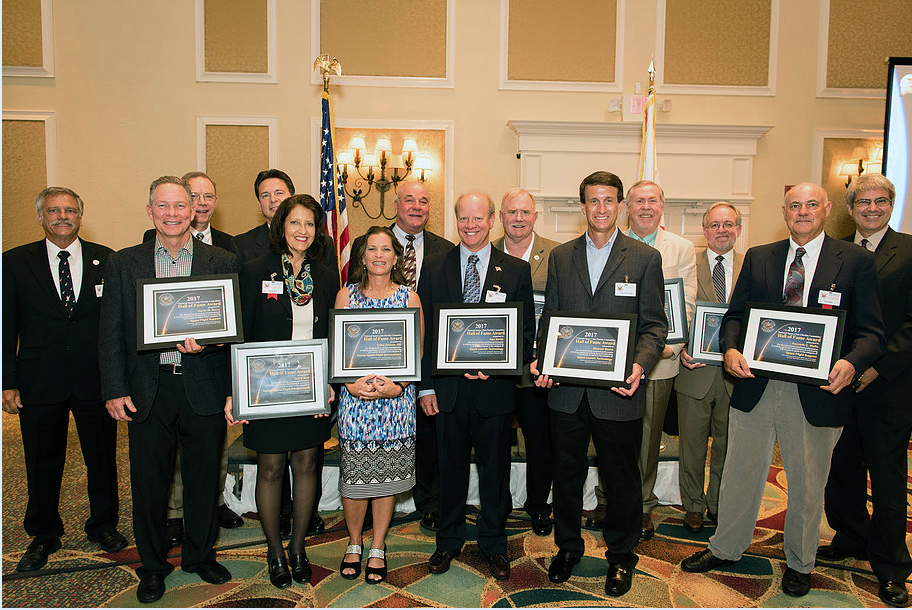
Human Spaceflight Advancement
Kevin M. Berry
Cathy Dibiase, RN
Debra Kral
Space Flight Support
James T. McCarthy
Steven Murray
Michael Runion
Kenneth C. Walla
Space Launch Technology
Bubba Herman
Peter Klonowski
Jack Lyle
Ken Smith
Michael Storm
2016
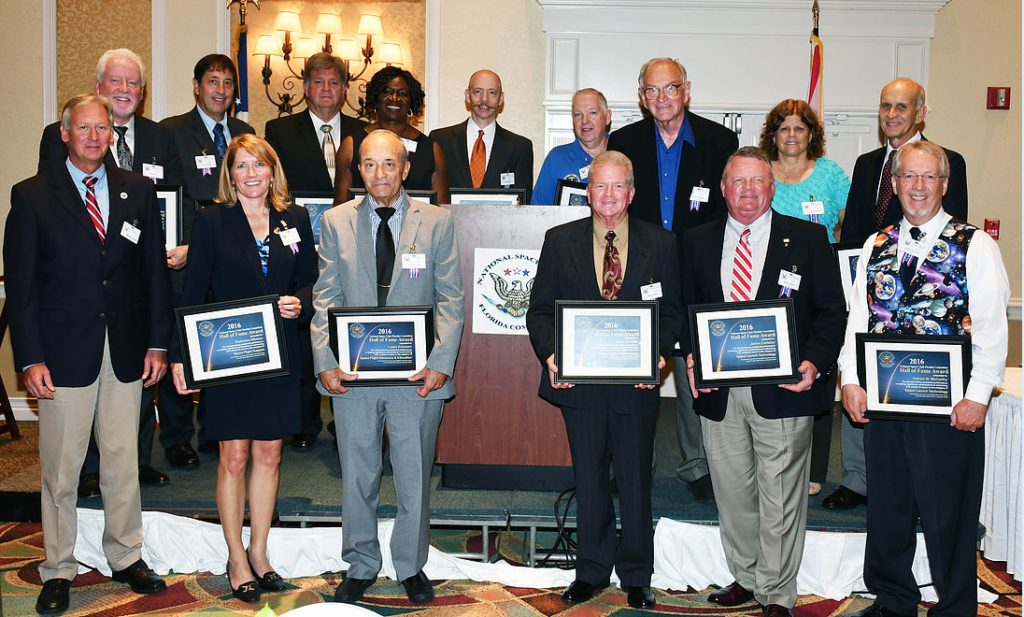
Human Spaceflight Advancement
Doug Perdomo
Roberta Wyrick
Space Launch Technology
James Carleton
Steve Gersten
Paul Krause
Patrick McCarthy
James Taylor
Richard Zeitler
Space Flight Support
Joan Hines
John Muzzy
Katherine Winters
Space Flight Advocacy and Education
Lance Erickson
William Fletcher
Roger McCormick
2015
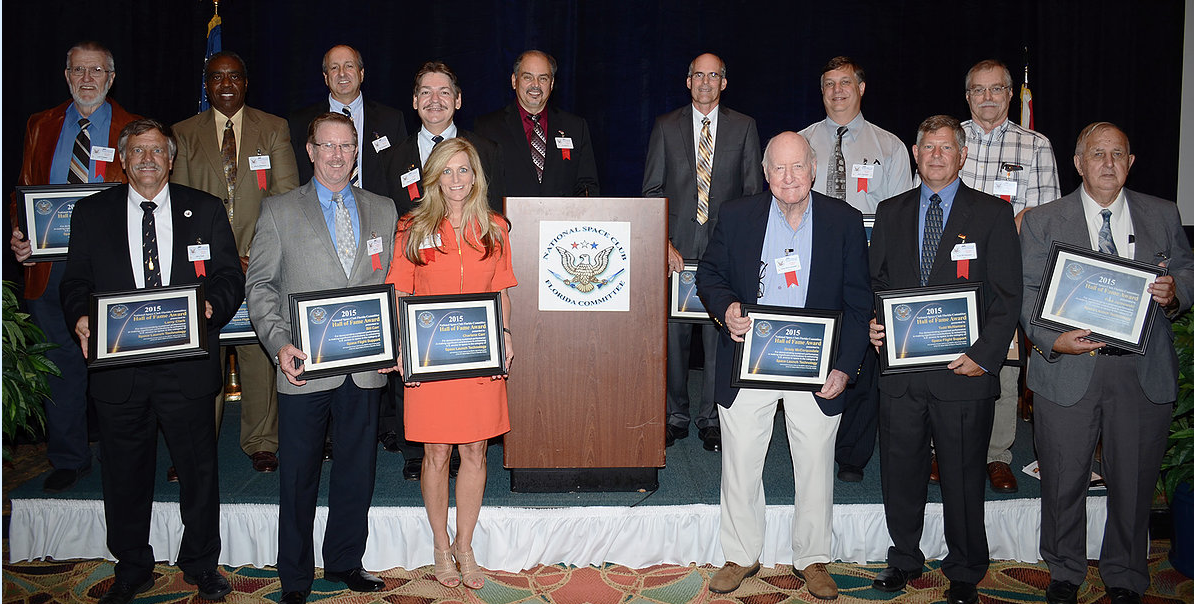
Human Spaceflight Advancement
John Cipolletti
Space Launch Technology
Van Bullington
Charlene Carr
Larry Clark
G. Wayne Finger
Lee Friedell
Fred Jankowski
Lou Marrero
Grady McCorquodale
James Melton
Space Flight Support
Bill Carr
Bob Humeniuk
Todd McNamara
Johnny Middleton
2014
Human Spaceflight Advancement
Mark Brave
Butch Cabe
Janet Rawlins
Space Flight Support
Gene Beckett
Merle Ellet
Dori Swift
Art Waite
Space Launch Technology
Pedro Medelius
Terrence Smith
Michael Wyckoff
Space Flight Advocacy and Education
Herb Yamada
Terry White


 Home
Home